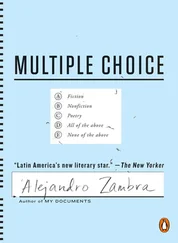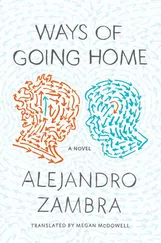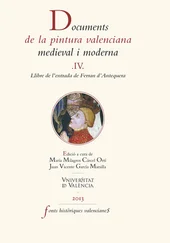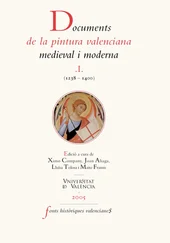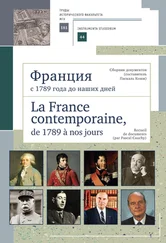Back then I’d picked up a few evening hours teaching at the technical training institute. The schedule fit perfectly: the class was from 8:00 to 9:20 p.m., twice a week, so I could maintain my nocturnal rhythm, getting up at noon, reading a lot, and all was well.
My first class was in March of 2000, a few days after Pinochet returned to Chile like he owned the place (I’m sorry for these reference points, but they’re the ones that come to mind). My students were older than me: they were all at least thirty and some were in their fifties. They worked all day, and struggled to pay their tuition for programs in Business Administration, Accounting, Secretarial Studies, or Tourism. I was to teach them “Techniques of Written Expression,” according to a very rigid and outdated syllabus, which encompassed composition, grammar, and even pronunciation.
In the first classes I tried to comply with what was asked of me, but my students came to class very tired from their jobs, and I think all of us got bored. I remember the desolation at the end of those first workdays. I remember walking along Avenida España after the third or fourth class, stopping at a hot-dog stand, ordering an Italiano, and thinking that I should tackle that feeling of wasted time head-on. After all, I was there to talk about language, and if there had been one constant thing in my life it was a love of certain stories, certain phrases, of a handful of words. But it was clear that, up to that point, I hadn’t been able to communicate anything. “Interesting class, Prof,” one student told me at the entrance to the metro, as if fate were trying to dispel my dark thoughts. I hadn’t recognized her. To combat my shyness, I opted to teach class without my glasses, so that I couldn’t make out my students’ faces, and if I had to ask a question, I’d just look toward some undefined place and say, “What do you think, Daniela?” It was an infallible method, because there were five Danielas in the course.
The name of the woman who talked to me in the metro wasn’t Daniela, but it rhymed: Pamela. She told me that she still lived with her parents, that she didn’t have a job. I asked her why she went to school at night, then. “Because it’s hot during the day,” she answered, flirtatious and disdainful. I asked her if she went to school at noon during the winter, and she laughed. Then I wanted to know if she really thought the class had been good. She looked down, as if I’d asked her something very intimate. Then almost a station later she said, “Yes, interesting.” We got out together at Baquedano, and I kept her company while she waited for the bus to Quilicura.
It hadn’t been so unusual when I was at the university, there were tons of examples: male teacher with student (male or female), female teacher with student (same), and there was talk of a few salacious cases (perhaps somewhat exaggerated) of a male teacher with two female students, and a female teacher with three male students and a female librarian (in the library, on top of the returns desk). So I thought it wouldn’t be that serious of an infraction if I tried to make something happen with Pamela. She wasn’t short or tall, not fat or thin: perfect, I thought. (I’ve never known how to answer those kinds of questions: do you prefer dark hair or blond, et cetera.) I knew for certain that there was something in her voice, in her attitude, in her eyes, that I liked.
I was engrossed in these speculations when I reached the office. I poured a coffee and smoked one cigarette after another (Portillo didn’t smoke, but he still allowed us to), thinking about love and also, I don’t know why, about death, and then about the future, which wasn’t my favorite subject. I thought how it was the year 2000, and I remembered the conversations we’d had as children, as teenagers, about that far-off future year: we had imagined a life full of flying cars and happy teleportations, or maybe something less spectacular but still radically different from the soulless and repressive world we lived in. I must have fallen asleep thinking about that, because the phone woke me up shortly after, at one in the morning. It was my boss calling to remind me that at 3 a.m. they were going to shut off the water. While I was filling up the thermos and the sink, I thought of myself, probably for the first time ever, as a solitary person.
According to procedure, fourteen days after the first call took place, we had to contact the client (the “pax,” as we called them) and ask how their illness had turned out, and what their opinion was of the service they had received. This part of the process was referred to as the social call, and it was the last step before closing a file (oh, what strange pleasure we felt when we finally closed a file). So I picked up the phone and I called Paris: Juan Emilio was still at his daughter’s house, and it was she who answered — la Moño didn’t strike me as quite so friendly as her father. “Call him later,” she said dryly. That’s what I did. Juan Emilio seemed moved by my call, which tended to happen, because some of the clients thought that we were calling out of personal concern, as if some sad night operator would or could care about a compatriot on the other side of the world coming down with a slight cold.
Toward the end of the conversation, Juan Emilio asked me if I liked my job. I replied that there were better ones, but that this one was pretty good. “But what did you study?” he insisted. “Literature,” I replied, and he let out a chuckle. I usually hated it when people asked me that question, but neither his question nor his laughter bothered me. Over time I learned to accept and appreciate Juan Emilio’s crescendos of laughter, minimal at first, and then frank and contagious.
Four or five days later, now back in Chile, he called again. It was seven in the morning, and I was fast asleep in the office. “I want to know if you’re okay,” he told me, and we got caught up in a conversation that would have been normal if we had been two teenagers becoming friends, or two old men trying to combat the inertia of a Monday at their retirement home. I thought Juan Emilio was pretty crazy, and maybe I felt proud to participate in his madness. “Pax very friendly, calls for no reason and thanks me again for the service,” I wrote in his file. But really there was a reason for his call, although I think that it occurred to him only as we were talking: he asked me to be his teacher, his guide in reading. “I need to be more cultured,” he said. It seemed simple: I would recommend books for him to read, and then we would discuss them. I accepted, of course. I proposed a monthly sum and he insisted on doubling it. I offered to go to his house or his office, although I didn’t really see myself taking the metro and a shared taxi to cross the entire city every week. Luckily, he wanted the classes to take place at my apartment, every Monday, at seven in the evening.
Juan Emilio was short, redheaded, dandified. He dressed with awkward elegance, as if his clothes were always new, as if his clothes wanted to say in a loud and energetic voice: I don’t have anything to do with this body, I’m never going to get used to this body. We made a reading list that I thought might interest him. He was enthusiastic. I liked Juan Emilio, but the warmth I felt toward him was tempered by an ambiguous, guilty feeling. What kind of person could allow himself, when he was of working age, such a long European vacation? What had he done all that time, besides take his grandchildren to all the ice cream parlors in Paris? I tried to imagine him as one of those millionaire Chileans who flew to London to support Pinochet. I tried to see him as what I supposed he was: a full-on cuico, conservative, bourgeois, Pinochetista or ex-Pinochetista, although he didn’t talk like a cuico and his opinions weren’t so conservative and inflexible: at least you could talk to him, you really could. He was also discreet: he looked around my small apartment on Plaza Italia without revealing that it seemed a poor and rundown place to him. Later I thought, to mollify myself, Manichaean-style, that no Chilean executive would have a daughter studying in France, that France was the worst place in the world for the daughter of a Pinochetista.
Читать дальше

